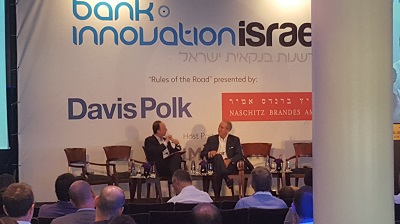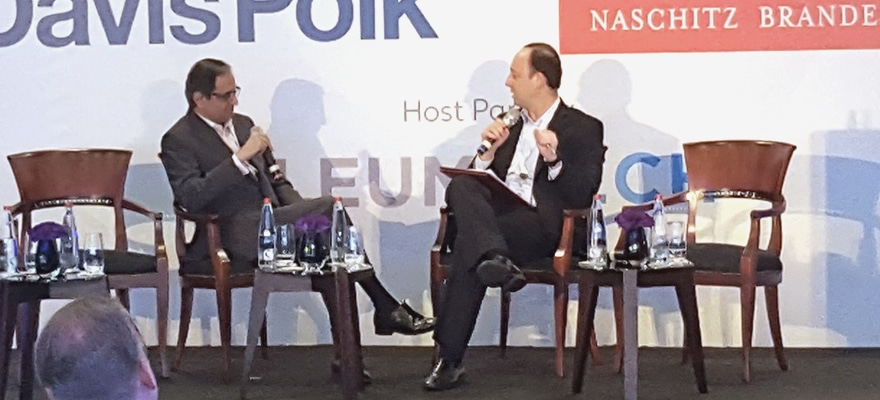Featured at today’s Bank Innovation conference in Israel, were fireside chats with Vikram Pandit, former CEO of Citi and Tom Glocer, former CEO of Reuters. Since moving away from leading global firms, both have become avid investors in private firms, with an array of investments in the fintech space. Both provided a glimpse into their thought process about the types of firms they invest in and areas of fintech they find interesting
Vikram Pandit – Transparency and Innovation
When asked about areas that Pandit is investing in, one theme he noted was that his portfolio of investments included firms that are increasing transparency. Pandit cited that marketplace firms such as Orchard are an example where consumers and business borrowers are gaining access to a wide list of potential credit solutions and their rates before deciding on a loan. Another investment that fits the trend of increased transparency is Fundbox. In this case, the firm’s solution enables businesses to easily share their invoices and financial details, therefore expediting their ability to receive capital.
Underlying the increase of transparency, Pandit explained, was the open architecture model being used by fintech startups. This he contrasted to traditional banks which prefer a closed architecture model which provides them an easier environment to sell customers a wider selection of products.
For fintech startups, Pandit stated that one of their challenges of operating an open architecture is in regards to Regulation . He explained that for regulators, the closed architecture is easier to govern since they regulate the company and not the marketplace. However, Pandit believed that as regulators become more comfortable with new technology, their stance will change to that of it being easier to regulate the marketplace and not individual firms.
When asked about areas of fintech, Pandit said that he wasn’t a big fan, however he didn’t want to pinpoint specific sectors but alternatively stated that he avoided “me too” companies. Pandit explained that there are plenty online cab ordering companies, but only one Uber. As such, his investments weren’t just based on finding companies he believed had great growth potential, but that are creating something entirely new.
As an example, Pandit stated that accounting automation is more or less the replacement process done by humans and automating them with technologies. Although this provides benefits for companies, the overall accounting process hasn't changed. In contrast, Pandit cited Blockchain technology and a distributed ledger which is an entirely new process for handling accounting.
Tom Glocer – Relationships

Tom Glocer interviewed at Bank Innovation Israel
Describing his investment thesis, Tom Glocer stated that it is very much based-relationships where he knows other investors involved or the founders. The result is that Glocer is more or less sector agnostic. However, he does have three criteria; he needs to love the people involved, like the idea on an intellectual basis, and that the startup has a chance of succeeding. Glocer later added that he likes “firms that solve a real problem”.
In terms of Glocer’s fintech investments, he explained that his latest was Circle Up. According to Glocer, the investment in an equity crowdfunding firm came as he had been involved in several marketplace startups on the credit side such as Lending Club, and has expanded along the marketplace chain to the equity side.
Moving the conversation to blockchain, Glocer explained that there is a philosophical debate whether banks should create private blockchains or have one's based on bitcoin. Either way, he added that the sum result of the blockchain to banks won’t be disruption to harm their revenues. In replace, he expected that the advent of distributed ledgers that will be accepted across all banks will improve their cross firm reconciliation process and effectively decrease their expenses.













